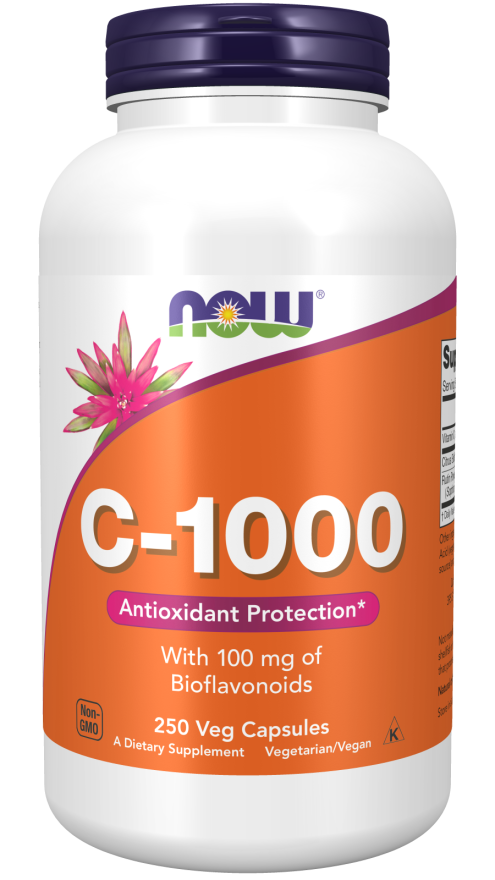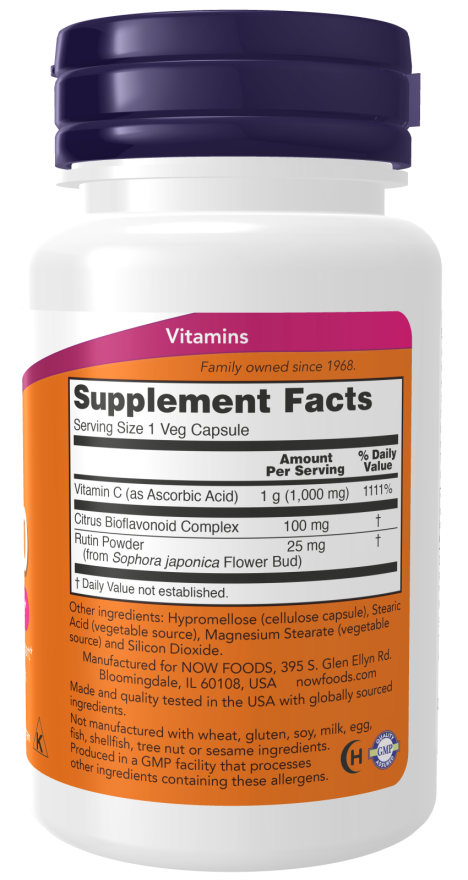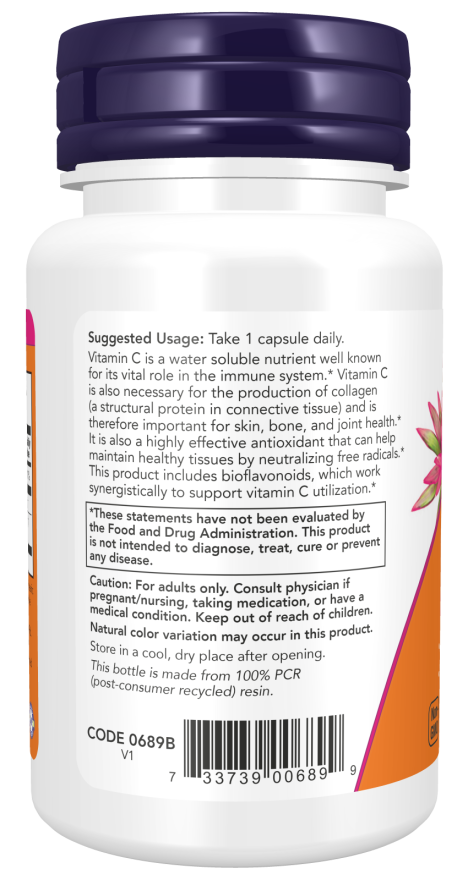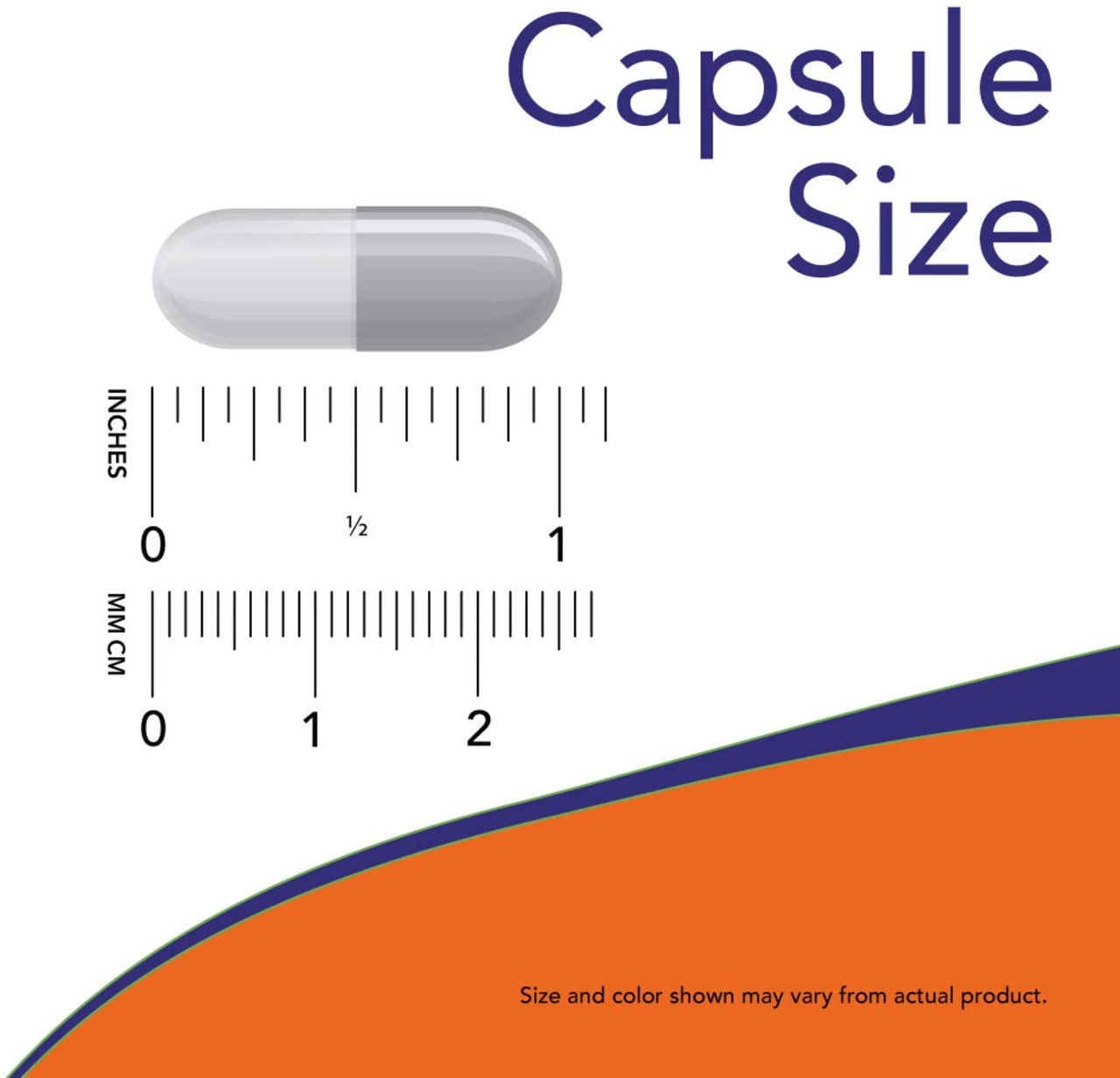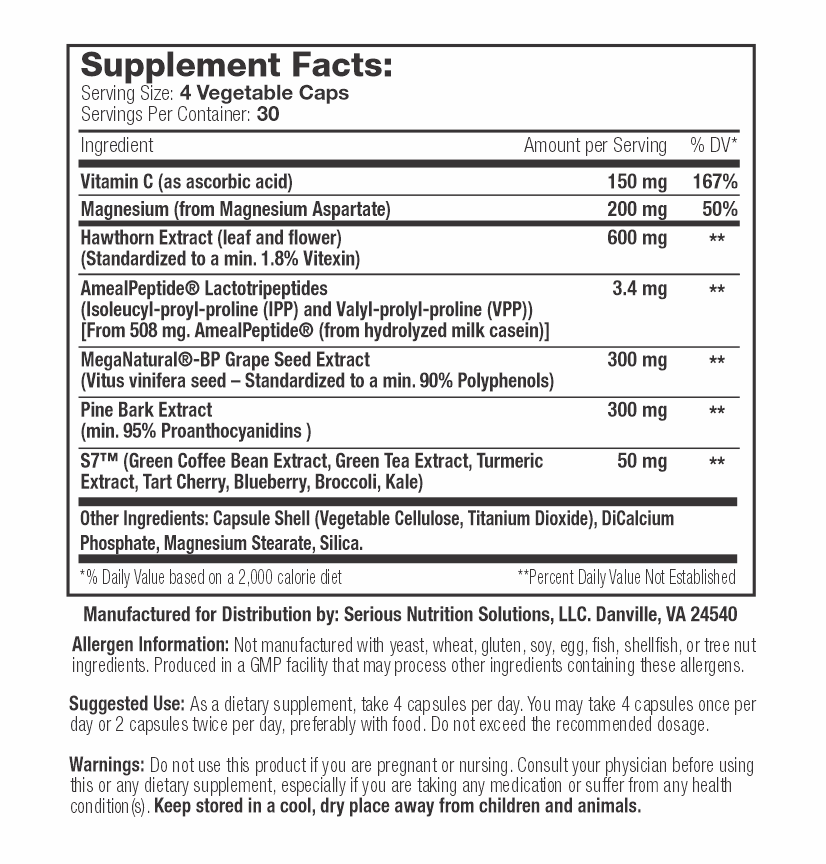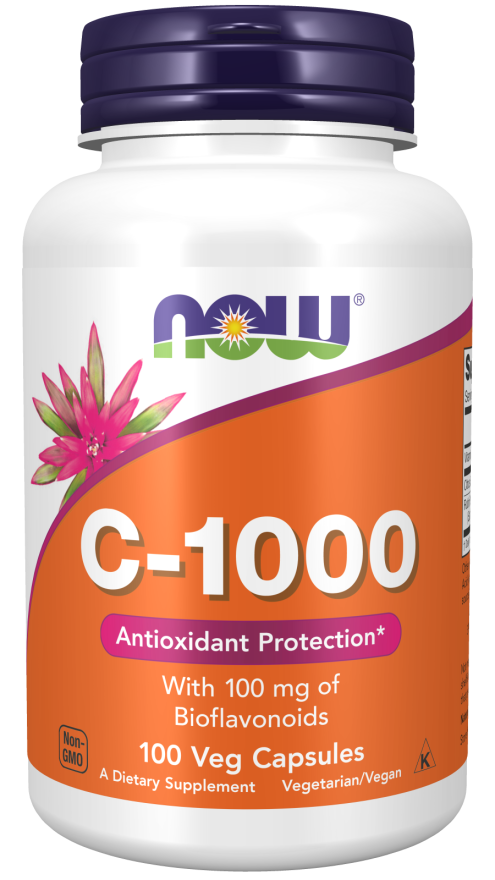Vitamin C may in some ways be the single most crucial nutrient for human beings... Learn more.
What is Vitamin C?
Since its discovery by Hungarian scientist Albert Szent-Gyorgi in the 1930s, more controversy has swirled around ascorbic acid, also known as Vitamin C, than any other nutrient. Perhaps this stems from the term "ascorbic acid," meaning "without scurvy," which refers Vitamin C's well-known ability to fight scurvy, a disease of Vitamin C deficiency. Many doctors and researchers have assumed that fighting scurvy may in fact be all that Vitamin C does. But this nutrient does far more than that, including (along with lysine and proline) play an indispensable role in the production of collagen, the body's primary connection tissue--that is, the "glue" that holds our cells together.
Vitamin C may in some ways be the single most crucial nutrient for human beings, guinea pigs, bats, and primates, all of which lack L-gulonolactone oxidase, a crucial enzyme that allows every other mammal species to make life-giving Vitamin C inside the body. (A 150-pound goat, for instance will manufacture as much as 13,000 mg of vitamin C per day, an amount hundreds of times more than the human RDA.)
What are food sources of Vitamin C?
Oranges, grapefruits, tangerines, lemons, limes, papaya, strawberries, and cantaloupe contain especially high levels. Good amounts can be found in tomatoes, broccoli, green and red bell peppers, raw lettuce and other leafy greens, with small quantities also present in potatoes. Unfortunately, for many modern Americans the primary source of Vitamin C comes from French fries.
What is Vitamin C used for?
Literally tens of thousands of studies involving Vitamin C have been performed, and a number of these indicate that higher-than-RDA levels may play a role in helping boost the body's immunity by raising levels of antibodies and immune system cells such as phagocytes and neutrophils, as well as interferon, the protein that helps protect us from viral invaders and cancer cells. This may explain Vitamin C's reputation as a powerful cold- and infection-fighter.
Additionally, Vitamin C appears to promote the formation of healthy bone tissue, markedly speed wound healing, and fight gum disease. It appears to reduce levels of lead in the human body. A powerful water-soluble antioxidant, it also helps the body "recycle" fat-soluble Vitamin E. And without Vitamin C the body cannot manufacture the amino acid carnitine, or absorb iron, or break down pro-inflammatory histamine, a component of many allergic reactions.
Vitamin C is well known to inhibit the formation of cancer-causing nitrosamines in the stomach, which are often generated by eating preservative such as nitrites from sausages and other cured meats.
Interesting, some tissues in the body accumulate more than 100 times the level of Vitamin C than is typically found in blood plasma. These include the adrenal glands, the pituitary gland, the thymus, and the retina. The brain, liver, testicles, and thyroid accumulate more than 10 times the concentration present in blood plasma.
Scientists such as the Nobel Laureate Linus Pauling have claimed that ingestion of high levels of Vitamin C inhibit the formation of arterial plaque, prevent the oxidation of LDL cholesterol, and generally play a crucial role in reducing the risk of cardiovascular disease.
How is Vitamin C taken?
Vitamin C can be taken as a powder mixed in water or juice, as a chewable tablet, or as a pill. Since pure Vitamin C is somewhat acidic and can occasionally cause gas or diarrhea, many users prefer buffered forms, such as ascorbate or Ester C.
The body rapidly excretes Vitamin C, so knowledgeable scientists and doctors often suggest taking it two, three, or even four times a day to prevent big drops in levels of this nutrient. Time-release forms of Vitamin C are also helpful.
Bear in mind that many individuals have differing requirements for vitamin C. Although the Recommended Daily Allowance is 60 mg per day, diabetics, smokers, and those will chronic illnesses may well benefit from higher doses.
Is Vitamin C safe?
Yes. No fatalities linked with Vitamin C have ever been recorded. Do not, however, take so much as to cause gas or loose stools.
Linus Pauling and others have suggested taking several hundred to several thousand milligrams per day in divided does. If you decide to follow their advice, start with low doses and slowly work your way up.
And remember--you can get the best supplements at the best prices from A1Supplements.com!
These statements have not been evaluated by the Food and Drug Administration. This product is not intended to diagnose, treat, cure, or prevent any disease.

